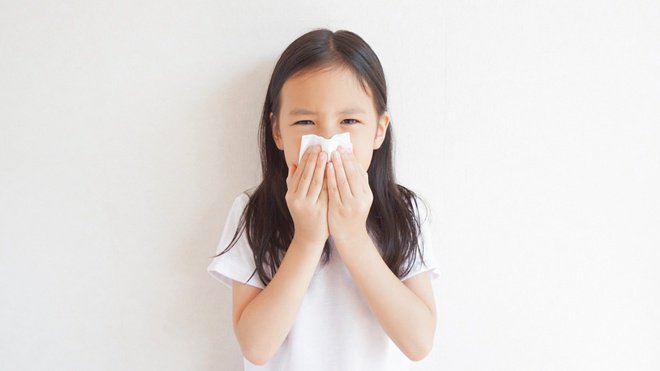Children's Allergic Rhinitis: What you need to know?
The article is written by MSc Pham Khac Tiep - Pediatrician, Pediatric Center - Vinmec Times City International General Hospital.
According to ARIA recommendations: Rhinitis is defined as inflammation of the nasal cavity mucosa and is characterized by symptoms such as sneezing, runny nose, stuffy and/or itchy nose. These symptoms last for at least 2 or more consecutive days or more than 1 hour on most days. Allergic rhinitis is defined when the above inflammatory symptoms are triggered by an allergenic factor.
1. The underlying cause of allergic rhinitis?
Allergic rhinitis usually presents in childhood and is caused by an immune response via immunoglobulin E ( IgE ) to various allergens in the nasal mucosa. The most common include house mites, pets, cockroaches, mold and pollen.
2. At what age can allergic rhinitis?
Allergic rhinitis can affect all ages. However, there are also some age-specific differences, although this difference is not very clear.
Sensitivity to outdoor allergens such as pollen can cause allergic rhinitis in children older than 2 years; however, is more common in children over 4 years of age. Meanwhile, sensitization to indoor allergens such as house mites, cockroaches... can occur in children under 2 years old.

Viêm mũi dị ứng là bệnh lý thường gặp ở trẻ em trên 4 tuổi
3. How does allergic rhinitis affect children?
Allergic rhinitis is not a serious disease, patients rarely need to be hospitalized for treatment, but it greatly affects quality of life. Patients often suffer from fatigue, headaches, loss of concentration, and insomnia, leading to reduced ability to study and work. In addition, if left untreated it can lead to complications such as bronchial asthma, sinusitis, nasal polyps, pharyngitis, otitis media....
4. Can allergic rhinitis be cured?
Like bronchial asthma, allergic rhinitis belongs to the group of chronic allergic diseases. Therefore, this disease cannot be completely cured and medicine does not use the word "cure" with allergic rhinitis, but uses the word "control" with this disease more. The main goal of treatment is for the sick child to achieve complete control of the symptoms so that the child with this disease can lead a full life like other healthy children.

Trẻ bị viêm mũi dị ứng cần được thăm khám và điều trị định kỳ theo lịch hẹn của bác sĩ
To prevent children from having allergic rhinitis, parents should also add some supportive foods containing lysine, essential micro-minerals and vitamins such as zinc, chromium, selenium, and B vitamins. .. helps to fully meet the nutritional needs. At the same time, support the immune system, enhance resistance, reduce the risk of upper respiratory tract infections, bronchitis, flu,...






